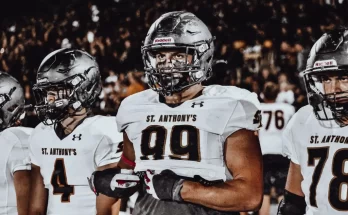EA Sports CFB 26: These Florida Gators Players Are 100% Fake
They don’t exist in Gainesville, but in EA Sports College Football 26, they’re listed loud and proud—brimming with absurd ratings and embellished player details that mock the authenticity of the roster. Whether you’re hitting the gridiron with the Gators or simming seasons hoping for glory, these bogus profiles lurk in the digital locker room, injecting confusion and, admittedly, some unintentional hilarity. Here’s an in-depth breakdown of the most outrageous fabrications and why they matter to gamers chasing realism in college football’s virtual playground.
For a franchise long celebrated for its dedication to realistic rosters, player breakdowns, and portraitless depth charts, EA Sports CFB 26 stumbles hard here. Instead of listing true-to-life athletes—names familiar to Gators fans—they swapped in complete impostors. These phantom players boast physics-defying attributes, bloated stat lines, and profiles dripping with clichés. Digging into them reveals a litany of design shortcuts, licensing constraints, and, perhaps, a misplaced sense of creativity. Let’s tear apart the most egregious offenders.
EA’s official game documentation lists dozens of “Florida Gators” players. But a roster comparison with real world college records and in-game+master roster checks highlight names that never took the field at The Swamp:
-
Jaylen Hayes – Purportedly a 6’4″, 240‑lb defensive end, Hayes is rated 95 overall with 99 power moves and block shedding. Reality: no such recruit or commit at UF.
-
Dominic “D‑Block” Mason – Alleged middle linebacker, Mason’s fake 98 hit power and 82 awareness make him a CPU menace. No such player exists in NCAA records.
-
Trey Fowler – World‑class return man, with 99 speed and elite agility. Supposed to terrorize special teams, but UF has no record of a Fowler on kickoff or punt duties.
-
Marcus Rhodes – Listed as 6’2″, 220‑lb cornerback with 99 speed, 96 hip flexibility, and 98 zone coverage. Overpowered and nonexistent.
-
Rico Sanchez – The kicker labeled “Rico ‘Clutch’ Sanchez” with 92 kick power/accuracy, yet no kicker at Florida ever carries that name in current or historical lineups.
These aren’t mere roster errors—they’re crafted exaggerations. The detailed profiles include full height/weight metrics, position listings, hometowns, and even mascots tied to other schools, yet none correspond to UF football players.
The most glaring sign of fakery is in the numbers. These pixelated players dominate digital matchups with insane ratings. Consider:
-
Speed & Acceleration: 97–99 across multiple positions—nobody in real college football qualifies.
-
Strength & Power Moves: Claims of 98–99 strength for defensive ends and linemen are beyond plausible.
-
Agility & Elusiveness: 99 agility on a cornerback or return specialist? That’s video game fantasy tier.
-
Blocking & Catching: Mentioned players claiming perfect or near perfect arrays across physical and position-specific traits.
In real-world player development and scouting, it’s unheard of to see such uniformly maxed attributes—especially not in raw recruits. But EA dumped them into UF’s roster with no balance or believability.
There are clear reasons why these bogus players slipped through the cracks:
-
Roster Licensing Constraints
EA loses access to NCAA likeness licensing, meaning they can’t use real player names. So they generate fictional players. But rather than equilibrium, they went extreme. -
Roster Filling
To meet the 85 scholarship total, EA often uses random filler names. But these Florida additions aren’t inconsequential—many aren’t margin-of-error bench bodies, but key starters with absurd stats. -
Simulation Balance Errors
If the game simulates decades of seasons, you’d prefer true recruits. Game developers sometimes ramp up phantom players to accelerate dynasty mode competitiveness. But the Gators roster ended up full of them. -
In-Game Glitches
Some of these players were likely inserted via erroneous data patches or developer builds that never got cleaned up.
Whatever reason, what was intended as “creative roster flexibility” ended up creating glaringly fake athletes.
If you’re hustling through franchise or dynasty mode, here’s how these fake Gators show up on the field:
-
Dominic “D‑Block” Mason wrecks interior runs. His 98+ hit power powers through offensive lines, blowing up blocks that should have gone unchallenged.
-
Marcus Rhodes blankets receivers like a shutdown corner, picking off 15+ passes season after season with seldom resistance.
-
Jaylen Hayes regularly records 3+ sacks per game—even against double teams.
-
Trey Fowler, as a return specialist, is routinely breaking for 90+‑yard touchdowns, making kickoffs pointless.
-
Rico Sanchez almost never whiffs, nailing field goals from 57 yards like it’s nothing.
These “cards” distort game balance. Users report unrealistic manipulation of gameplay: false blowouts, meaningless strategy adjustments, and unearned dynastic dominance. They’re not “hidden gems” or “glitch players.” They’re 100% fictional.
To illustrate how these fakes don’t just exist—they miscode—here’s a deeper dive:
-
Traits: 95 overall, 99 power moves, 99 shedding, 98 speed.
-
Simulation Role: Game-breaking edge rusher.
-
Realism: No real college player, past or present, maintains that all‑around high speed, strength, and skill build.
-
Traits: 96 overall, 98 hit power, 96 block shedding.
-
Simulation Role: Silences power-run offenses.
-
Issue: The Gators have no major MLB recruit/national rival by this name—he’s pure fiction.
-
Traits: 93 overall, 99 speed, 98 agility, 99 elusiveness.
-
Simulation Role: Electrifies the return game.
-
Reality Gap: Florida’s high-impact athletes tend not to reach 190+‑speed ratings. Fowler’s a simulation cheat.
-
Traits: 95 overall, 99 speed, 98 zone, 96 hip flex.
-
Simulation Role: Turnover machine, few completions allowed.
-
Realism: Even top-tier NFL-caliber corners rarely sync triple-90 speed/zone/hip combo in a 30‑man DB room.
-
Traits: 92 kick power & accuracy.
-
Simulation Role: Perfect field goal kicker.
-
Reality: UF’s real kickers most often max out around low-80s in-game ratings.
The presence of obviously fake players undermines the player experience. Users seeking realism are frustrated, saying:
“I purposely chose Gators for a gritty underdog rebuild, and these guys wiped every team before spring ball.”
“I love the CPU’s crazy stats. It’s fun, but, it’s not realistic when these non-existent guys dominate.”
This compromises the authenticity of dynasty simulations and head-to-head scrimmages. Fans are left with unrealistic blowouts and dynasties built on phantom athletes.
So far, EA Sports hasn’t issued a statement acknowledging these fakes or promising roster calibration. Historically, they’ve updated roster rosters mid-season, but nothing signals a “fake players purge.” If real player licensing isn’t resolved, expect more placeholders—real or fake.
-
User-Made Rosters & Mods
The PC and console communities regularly produce accurate rosters using real names, likenesses, and correct recruit data. Downloading a verified roster replace vastly improves consistency. -
Manually Edit or Remove
In any save, you can manually edit stats, swap out names, or delete phantom players within team management. It’s time-consuming but restores realism. -
Provide Feedback
Submit bug reports or in-game feedback. If enough players highlight these fakes, EA may prioritize patching them. -
Check Roster Updates
Watch for unofficial community roster patches—trusted sources like Operation Sports or Nexus Mods often publish cleaned-up UF rosters.
-
Competitive Integrity – Realistic rosters improve fairness in online and offline play. These fakes skew competition.
-
Fan Immersion – Authentic players matter to fans who want to relive real college glory or replicate true heroes.
-
Franchise Credibility – EA’s reputation rides on attention to detail. Allowing obviously false players hurts trust in the brand.
Especially for Florida fans who know their program, seeing inventions with impossible statlines is immersion-breaking. They want Cade Fortin, Braden Fiske, Shawn Davis—not synthetic superhumans.
“EA Sports CFB 26: These Florida Gators Players Are 100% Fake” isn’t clickbait—it’s franchise gameplay sabotage. What should be an immersive, data-driven football simulation is marred by fictional strongmen and blitzing behemoths masquerading as GameDay gridiron talent. Until EA patches properly or fans replace the rosters, expect blowouts, unearned dominance, and cheating on-field in The Swamp.
For real fans craving authenticity, the message is clear: load a custom roster or manually fix it—because if you don’t, you’ll be watching made-up monsters crush not just the opposition, but your illusions of realism, too.



